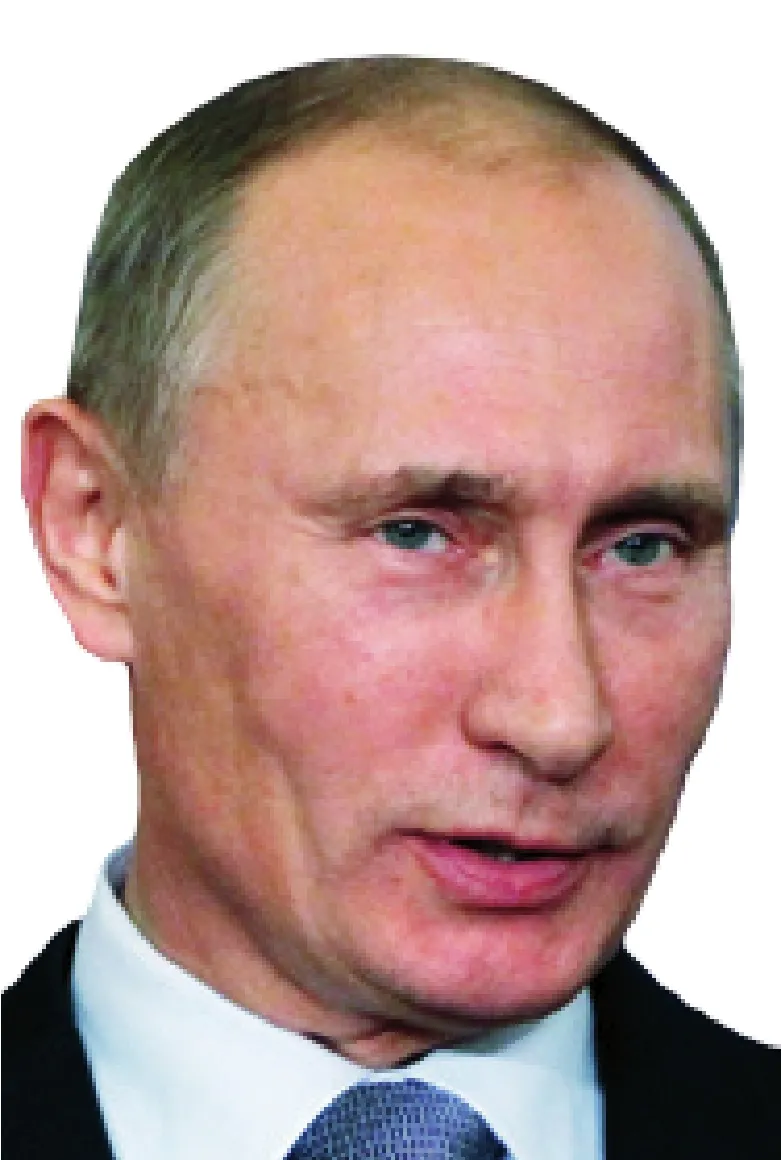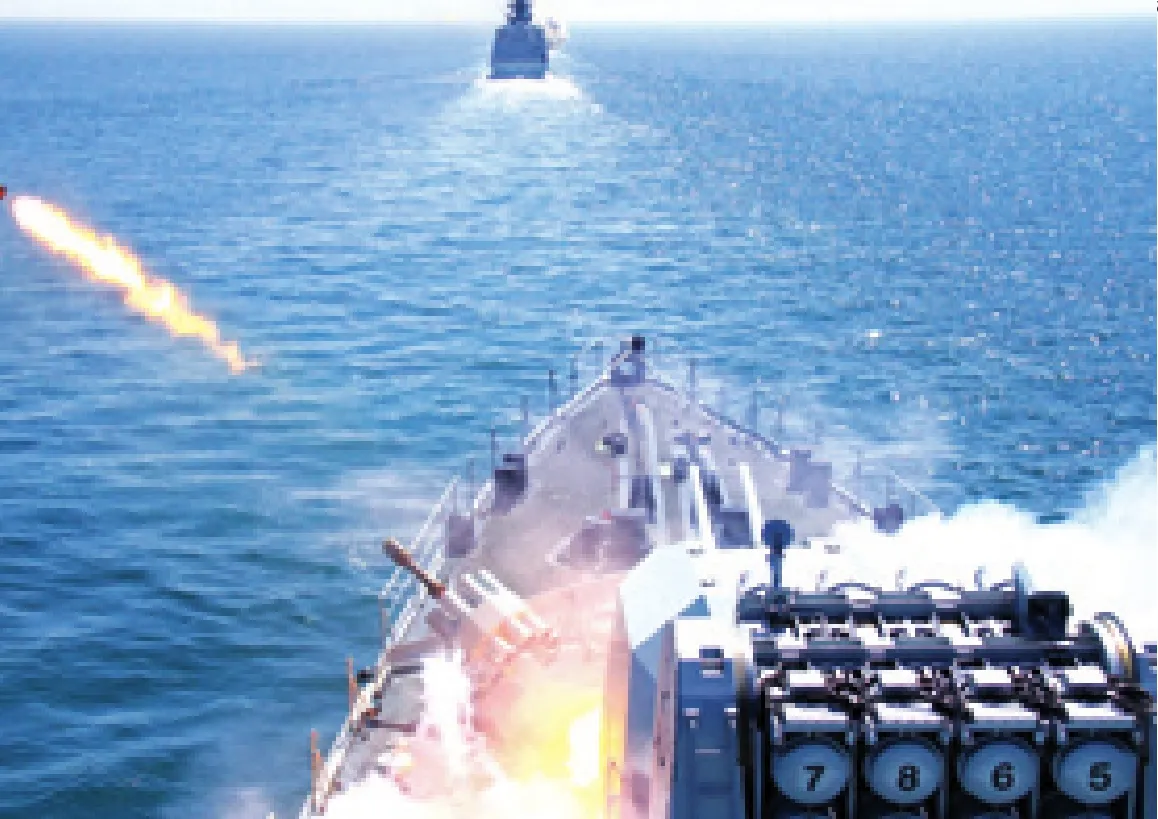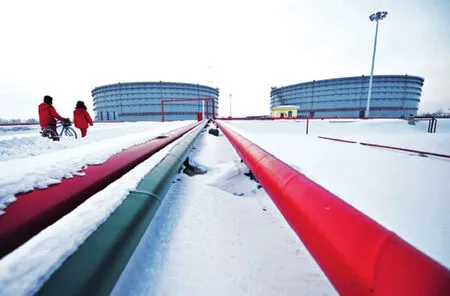REALIZING CHINESEAND RUSSIAN DREAMS
By Ding Ying
China and Russia are determined to promote bilateral relationship to make both countries safe, strong and prosperous

Everyone’s dream is different. But most countries’ are similar: to make themselves strong and prosperous.For two neighboring powers like China and Russia, promoting bilateral cooperation is helpful in turning such dreams into reality, due to a common interest in development and responsibility in maintaining peace and stability in the neighborhood, as well as the world.
China’s newly elected President Xi Jinping conducted his first state visit to Russia from March 22-24 to further relations. This visit,which happened at a pivotal moment in bilateral ties, will de finitely be of historical significance.
A profound visit
A newly elected state leader’s first state visit is always eye-grabbing. Xi’s first appearance as Chinese leader in Russia reflects the two countries’ high-level relationship. Currently,both sides enjoy a solid, comprehensive, strategic and cooperative partnership, continually deepening practical cooperation based on mutual trust.
President Xi told Russian media in Beijing on March 19, “The fact that I will visit Russia,our friendly neighbor, shortly after assuming presidency is a testimony to the great importance China places on its relations with the country and to the high level and special nature of the comprehensive strategic partnership of coordination between both sides.”
According to Chinese Assistant Foreign Minister Cheng Guoping, Xi’s visit to Russia was aimed at sustaining the traditional relationship.Every newly elected state leader of each country routinely chooses the other as his first state visit destination. For example, Russian President vladimir Putin also paid his first state visit to China last June after he was reelected.
During Xi’s visit, he exchanged opinions with Russian leaders like President Putin and Prime Minister Dmitry Medvedev. The two countries jointly issued a statement and an action plan on implementing the Treaty of Good Neighborliness and Friendly Cooperation from 2013-16. The two sides also signed 20 cooperative documents concerning fields like trade,economy, energy, investment, local cooperation, cultural exchange and environmental protection.
“The China-Russia relationship now is at its highest level in history. The two sides believe there will be an even bigger breakthrough in future,” said Cheng.
Both sides are very optimistic about their future relationship, and gave high credibility to Xi’s state visit to Russia. “President Xi’s visit served as a link between the past and the future,”said Wang Lijiu, a researcher in Russian studies with the China Institutes of Contemporary International Relations (CICIR). He pointed out that during the past decades, the China-Russia friendship has been maintained at a high level.“Both sides show a strong and common willingness to further the current relationship. And they have the potential and ability to fu lfill this,”Wang stressed to Beijing Review.
The countries have similar ambitions for a prosperous future. “In spite of their respective indexes, China and Russia have similar schedules and goals,” said Wang. China plans to fully establish a moderately prosperous society by 2020. By then, its GDP and per-capita income will double that of 2010. According to Russia’s development strategy, it would like to squeeze into the list of the world’s top five economies by 2020.
Sergey Luzyanin, Deputy Director of the Institute of Far Eastern Studies at the Russian Academy of Sciences, believed Xi’s visit was an iconic event in the Sino-Russian relationship. The visit not only showed the extremely significant status of this relationship in China’s foreign policy, but also mirrored its decision in sustaining its usual tradition of pushing forward the Sino-Russian comprehensive strategic cooperative partnership. He spotlighted the special importance of the visit in a complicated international situation. “The trip is going to promote the bilateral relationship to a new level,”he said at a press conference on March 18.

practical cooperation
China and Russia have become each other’s major and most important strategic partners,and both accord priority to their relationship in their overall diplomatic agenda and foreign policy. Before Xi’s visit, China and Russia already felt comfortable and confident in the current status of their relationship. And they are very sure that there’s still great potential to develop and deepen cooperation in the future.
China and Russia are important neighbors and partners to each other, said Chen Yurong,a researcher in Russian studies with the China Institute of International Studies (CIIS). And both are permanent members of the UN Security Council.
After 20 years, the China-Russia relationship has grown into a comprehensive strategic “president Xi’s visit served as a link between the past and the future.”— Wang Lijiu, a researcher in Russian studies with the China Institutes of Contemporary International Relations partnership of coordination. The two sides have completely settled their long-stranding boundary dispute, placed their political ties on a solid foundation and supported each other in issues concerning their respective core interests, Xi concluded on March 19.
During the past two decades, China and Russia have formed a highly scaled mutual trust.Newly appointed Chinese Premier Li Keqiang concluded on March 17 that no political obstacles remain, and there is nothing that cannot be discussed between the two sides.
Both parties issued a joint statement during Xi’s visit, aimed at pushing forward their bilateral relationship alongside the newly signed 2013-16 Sino-Russian Treaty of Good Neighborliness and Friendly Cooperation. The plan will serve as a guideline for bilateral cooperation in the coming years.
While maintaining close political trust, the two sides have deepened trade and economic cooperation. China has remained Russia’s top trading partner during the past three years,while Russia is China’s seventh biggest trading partner. Their bilateral trade volume hit $88.16 billion in 2012. According to plan, the volume should reach $100 billion in 2015 and $200 billion in 2020.Both China and Russia should work on making bilateral trade double, or even quadruple in the coming years, Premier Li said. Luzyanin predicted that the current bilateral trade volume will double in the coming five to eight years.

MILITARY EXERCISE: China and Russia conduct a joint military exercise in the Yellow Sea off Qingdao, east China’s Shandong Province, on April 26,2012

ENVIRONMENTAL COOPERATION:Environmental experts from China and Russia carry out water-quality monitoring along their border in the Heilongjiang River on February 28
Energy cooperation is also important. In February, China and Russia made a breakthrough in energy negotiations and signed related cooperative papers during Xi’s visit. Russia is expected to boost its crude oil supply to China, with a natural gas pipeline connecting China and Russia also on the horizon.
But China-Russia economic cooperation involves more than just energy. Their practical cooperation is further deepened in areas like processing, aviation, hi-tech and the joint development of Russia’s Far East region.
“Admit it or not, economic cooperation between China and Russia is complementary,”said Wang from the CICIR. This complementary nature also evolves with time and economic development. He pointed out that China and Russia are both in a period of economic transition when opportunities and challenges coexist.“Their cooperative conditions will get better with more potential to develop,” Wang said.
“China and Russia are each other’s development opportunity,” said Chen from the CIIS.She points out that Putin accelerated the pace of Russia’s economic modernization. Since the two countries share a mutual need, China’s emergence is not a threat to Russia, she added.
The two sides support each other’s core interests concerning sovereignty and territorial integrity. They firmly uphold the purposes of the UN Charter and the basic norms governing international relations and safeguard the post-World War II international order. Their stances are very similar on many regional and international issues. They both believe in solving conflicts under UN solutions while opposing military intervention.
“Feeling common pressure in the Asia-Pacific region, the two countries will increase cooperation in security,” said Wang. He added that they have common interests in maintaining regional and international peace and stability. The two sides are also committed to strengthening cooperation under international and regional frameworks like the BRICS group of emerging economies and the Shanghai Cooperation Organization.

ENERGY LINE: Two Chinese workers patrol the China-Russia oil pipeline in Daqing, northeast China’s Heilongjiang Province
Along with political and economic cooperation, China and Russia have been carrying out cultural and people-to-people exchanges. The peoples of both countries enjoy a long-standing traditional friendship. President Xi mentioned that, he read many books by Russian writers such as Alexander Pushkin (1799-1837), Fyodor Dostoyevsky (1821-81) and Leo Tolstoy (1828-1910) when he was young. Chinese tourists visiting Russia increased by 40 percent in 2012,the Year of Russian Tourism in China, according to Russia’s Ambassador to China Sergey Razov.The year 2013 is the Year of Chinese Tourism in Russia, which will hopefully enhance bilateral exchanges.
There are also differences between the two sides, mostly concerning economic disputes,Wang said, adding that there are barely any political differences between China and Russia.He believes that as economic cooperation deepens, enterprises from both sides will find more integrating points. “Nothing can be done overnight,” he stressed.
A model of international relations
Entering the era of globalization, today’s world is no longer the one of the old. Cooperation has replaced confrontation. The development of China-Russia relations conforms to this new trend. Now the two sides are setting a model of friendship between big powers.
Current ties between the countries, which are mature, stable, healthy and vigorous, based on practical cooperation, are quite different from the relations between big powers in the past, riddled with con flict, confrontation, hegemony and suspicion. Such a relationship based on cooperation and harmony is more suitable to today’s world.

TRADE PROMOTION: The then Chinese vice Premier Li Keqiang(right) and Russian First Deputy Prime Minister Igor Shuvalov attend a meeting on China-Russia trade and investment in Moscow on April 28, 2012
Both China and Russia realize that deepening the bilateral cooperation will benefit both. And this is the reason why their relationship has continued to develop during the past years, said Wang from the CICIR, “The two sides not only truly accept this concept,but also take practical steps to realize it. And the result is: People in the two countries are enjoying the pro fits of this relationship based on high mutual trust.”
“Their relationship is based on common interests, not alliance,” said Chen from the CIIS.“This is a type of relationship that is helpful to global peace and stability.”
China would like to conduct a similar relationship mode with every other country in the world.Just like Chinese Assistant Foreign Minister Cheng said, China’s commitment to strengthening ties with other developing countries doesn’t mean it will stop improving relations with the developed world.China always stresses a cooperative and win-win approach to affairs, which it believes is the only way every country can reach its full potential. ■
Landmark Events of the China-Russia Relationship
● December 27, 1991, China recognizes the Russian Federation and the two commence diplomatic relations
● September 1994, China and Russia declare the establishment of a “constructive partnership featuring good neighborliness and mutually bene ficial cooperation”
● April 25, 1996, China and Russia announce the establishment of a “partnership of strategic coordination based on equality and mutual benefit and oriented toward the 21st century”
● July 24, 2001, the Treaty of Good Neighborliness and Friendly Cooperation Between the People’s Republic of China and the Russian Federation is signed
● October 14, 2004, China and Russia issue a joint statement, declaring that the boundary dispute between the two countries has been completely determined
● October 14, 2008, China and Russia unveil markers for the eastern portion of their border
● June 6, 2012, China and Russia agree to enhance their “comprehensive strategic partnership of coordination” in a joint statement

